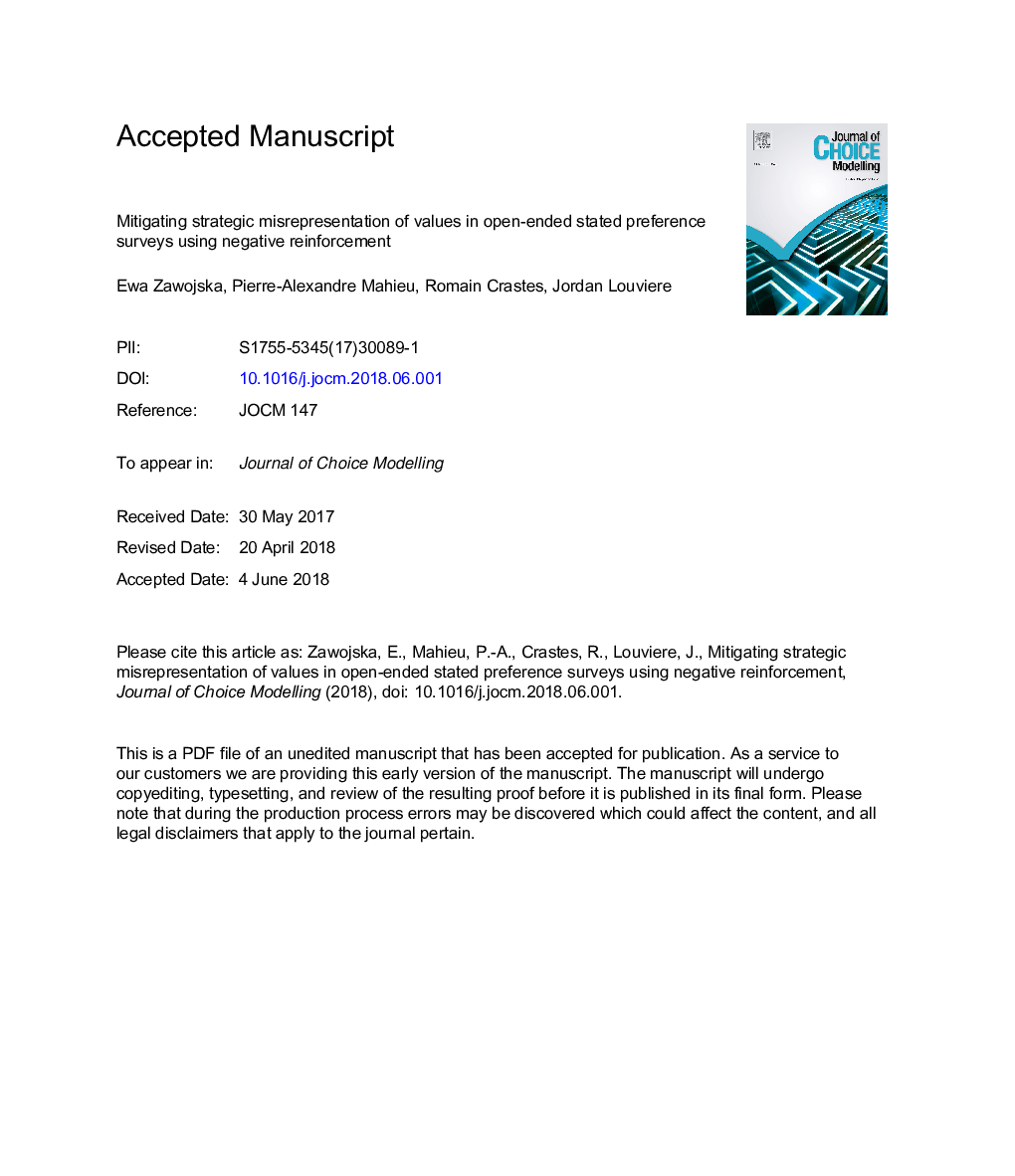| کد مقاله | کد نشریه | سال انتشار | مقاله انگلیسی | نسخه تمام متن |
|---|---|---|---|---|
| 7356804 | 1478386 | 2018 | 29 صفحه PDF | دانلود رایگان |
عنوان انگلیسی مقاله ISI
Mitigating strategic misrepresentation of values in open-ended stated preference surveys by using negative reinforcement
ترجمه فارسی عنوان
مقابله با سوءاستفاده های استراتژیک ارزش ها در نظرسنجی های ترجیح داده شده با استفاده از تقویت منفی
دانلود مقاله + سفارش ترجمه
دانلود مقاله ISI انگلیسی
رایگان برای ایرانیان
موضوعات مرتبط
علوم انسانی و اجتماعی
مدیریت، کسب و کار و حسابداری
بازاریابی و مدیریت بازار
چکیده انگلیسی
Open-ended questions are used in stated preference surveys to elicit values that individuals assign to goods and services. In some settings, the open-ended format can incite respondents to strategically misrepresent these values and, hence, it may lead to biased welfare measures. Literature has developed several methods, such as an oath or a cheap talk, to encourage truthful disclosure of preferences. These methods rely primarily on positive reinforcement by invoking positive associations of trust, honour and honesty, among others. In this paper, we propose a new approach that seeks to mitigate strategic misrepresentation of preferences by means of negative reinforcement, which arouses negative associations of, for example, mistrust and insincerity. The proposed negative reinforcement approach involves punishment for dishonesty in the form of unfavourable recoding of stated values if those are suspected of being untruthful. The approach is examined in a field survey concerning valuation of an entertainment event in the Plant Garden in Nantes, France. The survey makes value overstatement potentially attractive to respondents. We find that respondents who are aware of subsequent unfavourable recoding of insincere (i.e., overstated) values to zeros state significantly lower willingness-to-pay values than respondents who are not faced with the possible recoding of their answers. The effectiveness of the proposed negative reinforcement approach in reducing value overstatement is assessed against an existing positive reinforcement approach, namely against using the oath. Both approaches are observed to generate statistically equivalent value estimates, pointing to their similar effectiveness in mitigating incentives to overstate values.
ناشر
Database: Elsevier - ScienceDirect (ساینس دایرکت)
Journal: Journal of Choice Modelling - Volume 28, September 2018, Pages 153-166
Journal: Journal of Choice Modelling - Volume 28, September 2018, Pages 153-166
نویسندگان
Romain Crastes dit Sourd, Ewa Zawojska, Pierre-Alexandre Mahieu, Jordan Louviere,
